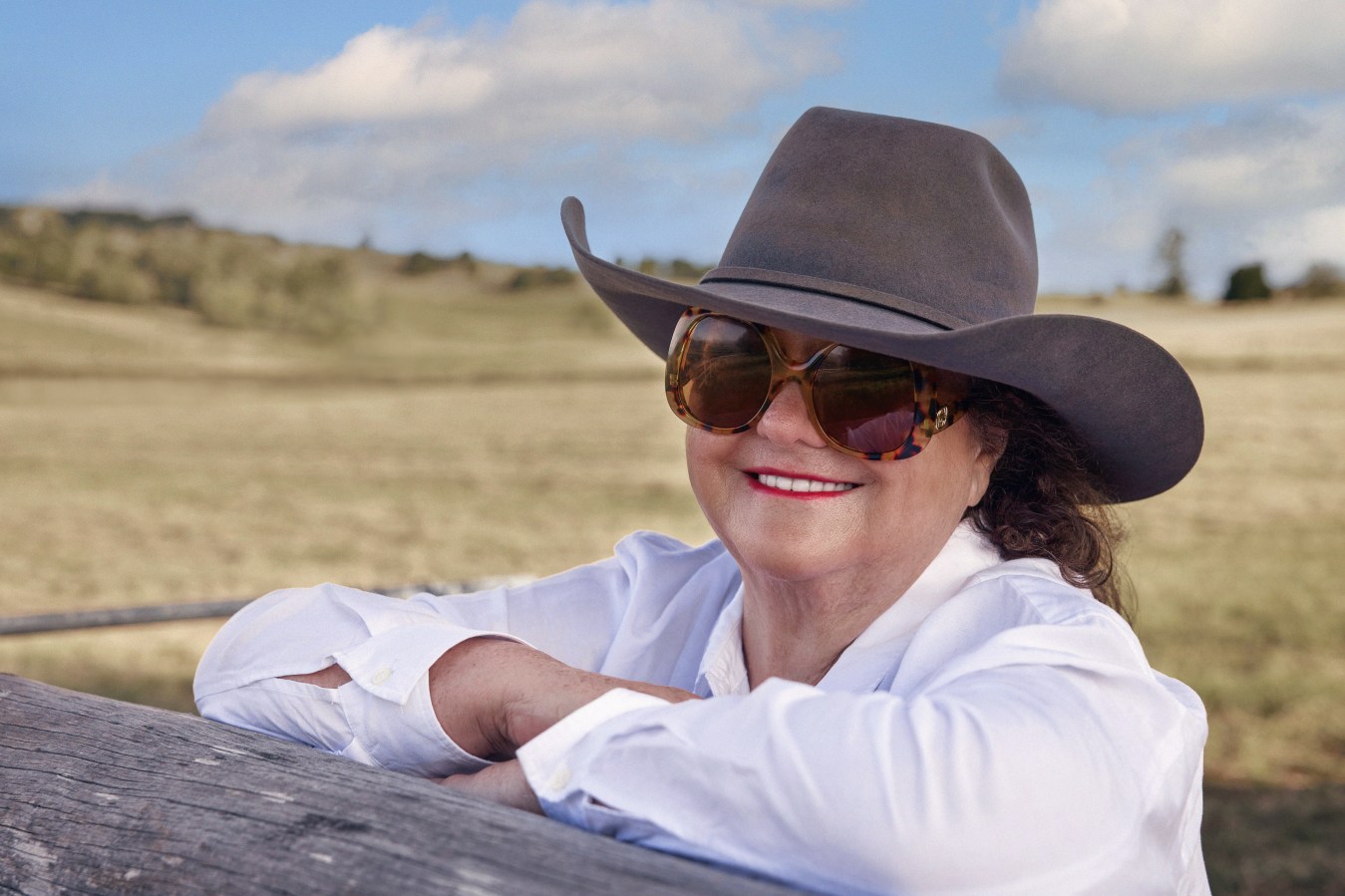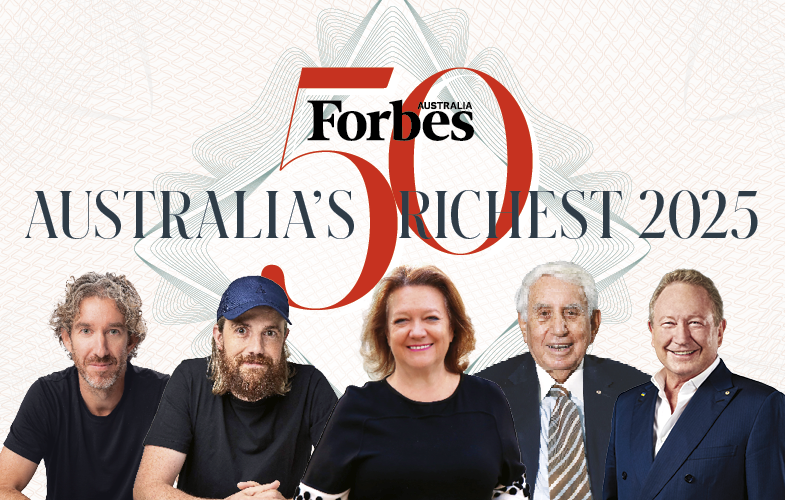Atlassian’s founders, Mike Cannon-Brookes and Scott Farquhar, shot to numbers 3 and 4 on Australia’s 50 Richest list in 2025. The former co-CEOs lay out their thoughts on the future of Australian technology.
Scott Farquhar will speak live at Forbes Australia’s Business Summit on 13 November. You can secure your ticket here.

When Scott Farquhar stepped down from the co-CEO role he co-created at Atlassian, our nation’s tech sector lost one-half of the most successful founding partnership Australia has ever seen.
“I think after 23 years, I’ve done enough there,” Farquhar says. “I’m still on the board of Atlassian, on the board of the Tech Council of Australia, still keeping involved with the tech industry. I am aggressively holidaying, which is a fun thing to do,” Farquhar tells Forbes Australia’s editor-in-chief Sarah O’Carroll at the 2024 Tech Council’s annual summit in Melbourne.
He and co-founder Mike Cannon-Brookes launched Atlassian in 2002 after meeting as undergraduates at UNSW, Sydney. The company’s mission is to help ‘unleash the power of teams’ and counts NASA, Dropbox, Reddit, and Canva among its 300,000 customers. “From medicine and space travel to disaster response and pizza deliveries, our products help teams all over the planet advance humanity through the power of software,” Atlassian’s website states.
More than two decades after the company got off the ground, the market capitalisation of Atlassian – which trades on NASDAQ under the ticker TEAM – sits above $130 billion. In August, Farquhar stepped away from the firm that facilitated his $28 billion personal net worth, and his ride-or-die teammate Cannon-Brookes stepped up to lead the company as sole CEO.
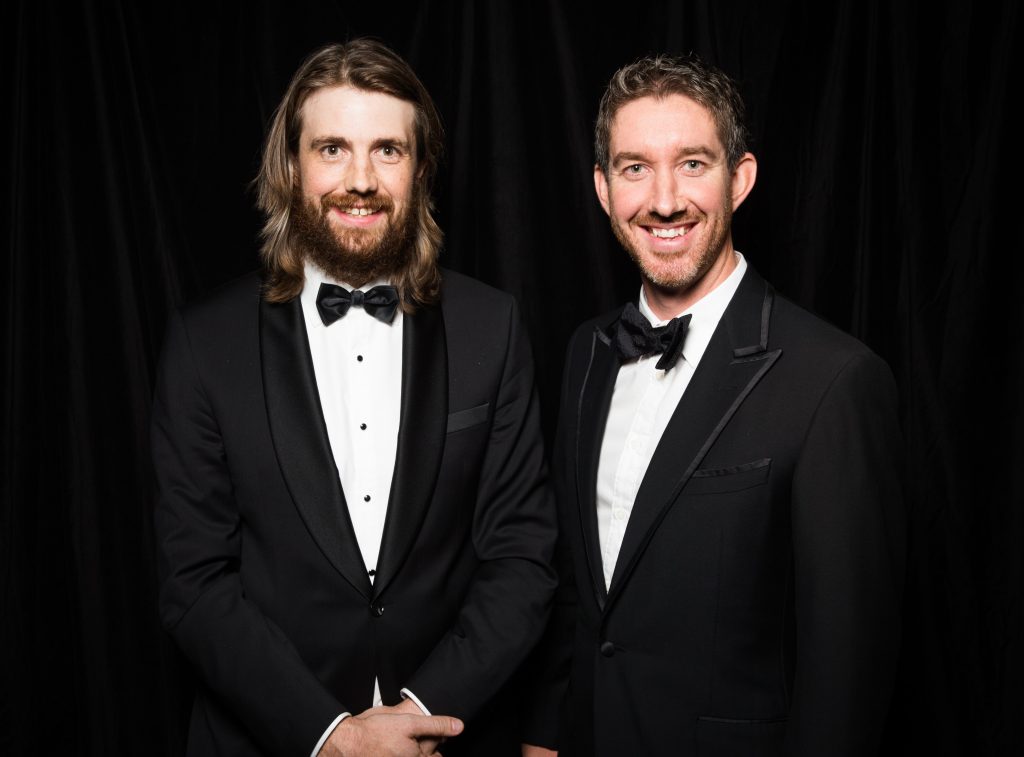
Since retiring in November, the now 45-year-old says he has been creating a new bucket list of things to get done. Leaving the company has been difficult, he says. However, in characteristic style, the hard-charging entrepreneur has set himself a new set of KPIs.
“When I look at all the things I want to achieve in life, whether it’s with my family, building the Australian tech industry to a certain level, or pledging 1% to a charity that I started a long time ago, I can now balance those things out,” Farquhar says. “And I’ve also done the silly thing of signing up for an Ironman,” he laughs.
Data centres, airports, waste and water
Retirement also enables Farquhar to have the time and space to think about how to invest his billions. “My wife runs Skip Capital. I help her out occasionally, but she’s the one that runs all of that,” he says. His wife is investment banker and systems engineer Kim Jackson. “She has a background in infrastructure, so she’s built hospitals and airports and toll roads and things like that,” Farquhar says.
That sector continues to interest the family investment vehicle, which invested in four airports late last year. Waste, water, data centres, the environment and climate are also areas of interest. According to Skip Capital’s website, the investments are held long-term and are flexible and patient. Areas of focus also include software-enabled companies, hardware, energy, life sciences and genomics.
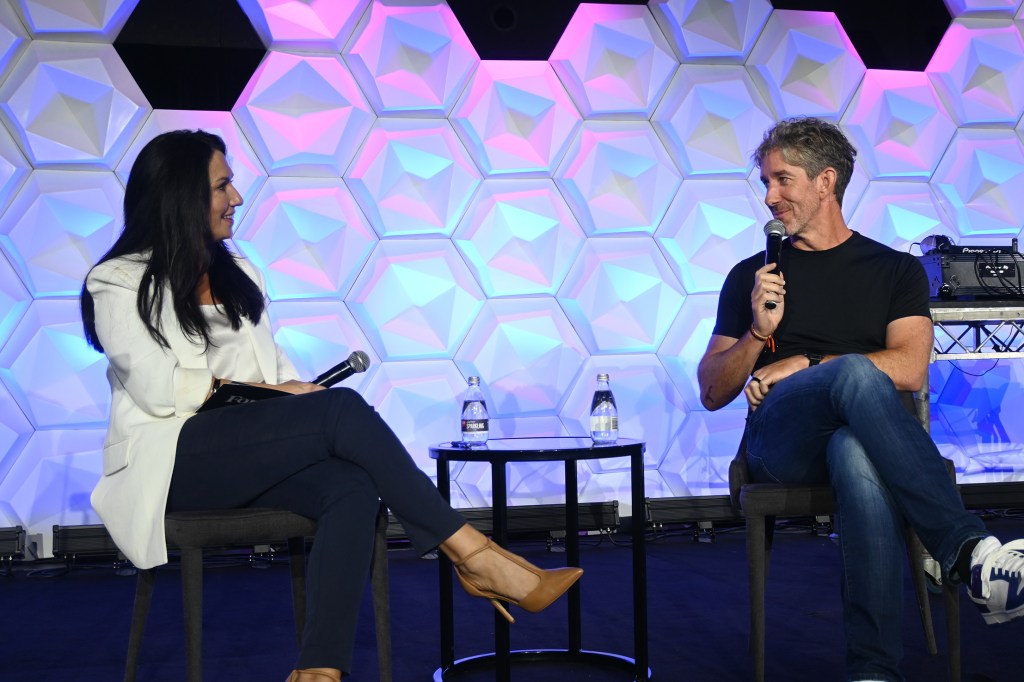
When it comes to emerging technology, Farquhar says he currently views AI as a sustaining rather than a disruptive technology and sees great opportunity for Apple and Google because those companies have established ecosystems to tap into. “When I look at a lot of the start-ups in this space, a lot of them just get obviated by the next release of, you know, ChatGPT 4.0 or those types of things. It’s not clear where the AI start-ups will have a decisive lead,” says Farquhar. “That said, a lot of the large language models are start-ups. You’ve got Anthropic, ChatGPT, OpenAI.”
Adapting to survive and thrive
Turning to the technology closer to home, the analogy Farquhar uses to describe Atlassian’s stratospheric rise is that of dinosaurs and meteors.
“Over time, all biological ecosystems end up in some sort of stasis, and it effectively becomes a stable environment – until there’s some sort of change in that environment,” he tells the Tech Summit audience.
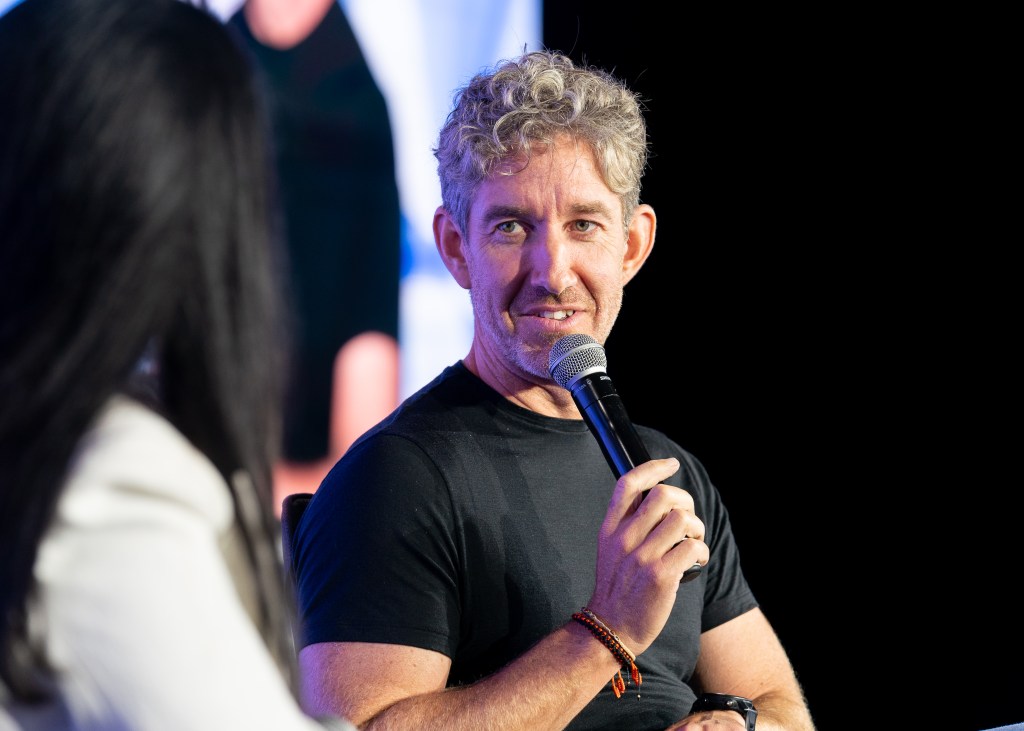
“Then, you have to adapt. Technology is the same, and business is the same.”
The dinosaurs in this analogy are companies built in the pre-dot-com era. “When Mike and I started in 2000, the internet was just coming around, and that was the huge meteor that changed all the technology companies.
“You saw Microsoft – which was so dominant through the 90s – totally lose its way through the internet era.” Two scrappy uni students using a credit card to bootstrap a start-up in Sydney could pivot much easier.
“Atlassian had a whole bunch of benefits in that we built open-source on open-source software. So we didn’t have to invest as much to catch up with people. We built all of our products on a browser. We could sell online. We were maybe one of the first people in Australia to buy Google ads. It was like a crazy environment to start a new company,” says Farquhar.
He likens the pre-iPhone, pre-SAAS period of the early 2000s to the current era of LLMs [Large Language Models]. “Now we’ve got AI that’s happening. It really is that new comet landing on this planet and changing the ecosystem again. That’s a really exciting time for us to all be in technology. Everything is up for grabs. It doesn’t matter if you’re one of the large incumbents because you still have to respond.”
Reshaping Australia’s tech future
The shift to AI also excites Cannon-Brookes, who was interviewed at the Summit by TCA Chair Robyn Denholm. “There will be businesses built in Australia that assume AI from the start, and that’s a great thing. We will hopefully continue to grow the technology industry from that,” he says.
That growth represents a significant opportunity for the economy. “Technology is increasingly the largest industry in the world. If we are not creating 1% of the world’s technology, that’s going to be a challenge for our position globally and our quality of life,” says Cannon-Brookes.
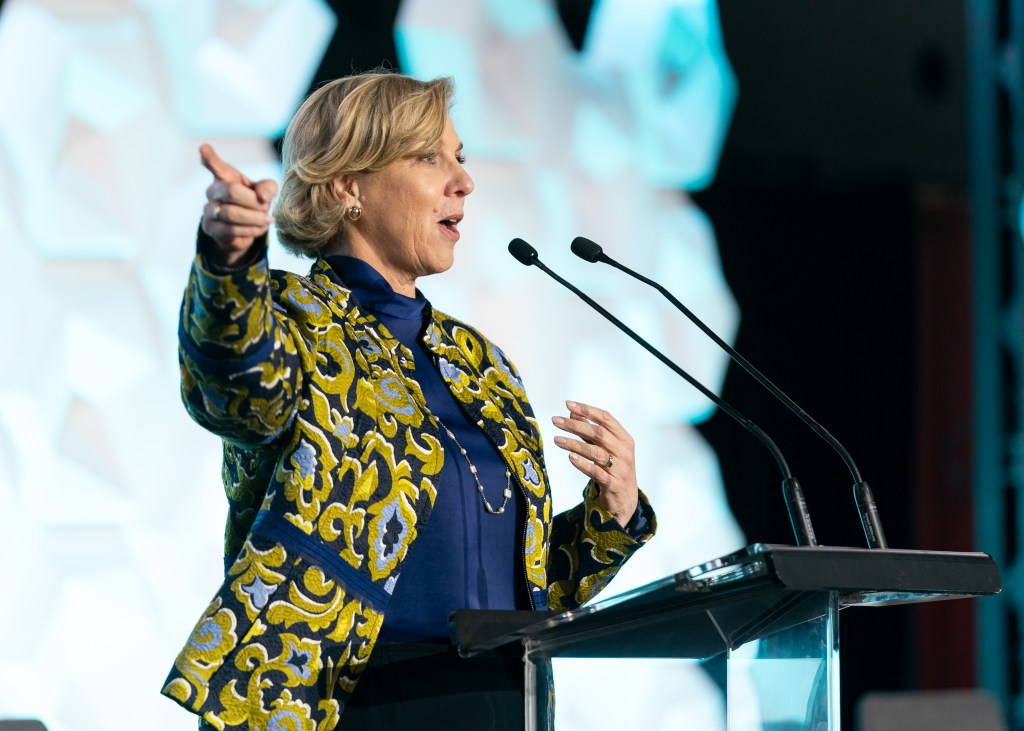
He and Denholm would like to see increased domestic investment in R&D. “We have, for a long time, invested far too little in R&D in Australia. We’re well below the OECD average – below the US, Switzerland, France and England. Investment in R&D will affect AI. We don’t invest enough in R&D – from the government, education, finance, big business, small business. We’re moving it up, but everybody else is also moving it up,” says Cannon-Brookes.
Denholm is also calling to increase the nation’s R&D spend.
“If I had one wish, it would be that the amount of technology we build and create in Australia in the AI wave is higher than the last internet wave. That’s my one wish for the industry as we move forward because I think we underestimate what we can actually do in Australia,” says Denholm.
Further to R&D expenditure, Cannon-Brookes believes Australia can capitalise on AI in two ways. “There’s an opportunity for Australian business to get more efficient and effective, to deliver better services and products to Australian consumers,” he says. “And there’s an opportunity for us to grow the Australian economy in the race against other nations, right? There’s no doubt we have a huge opportunity on both.”
He cautions that the prosperity of companies is dependent on the strength of the talent available to work in them.
“If you look at the internet, mobile, and AI, we’ve been constrained by the talent pool we have in the country every single time. Importing fantastic talent and having a great place where talent wants to live, grow, and build their lives continues to be the most important issue for the technology industry,” says Cannon-Brookes.
When it comes to the current challenges that the country’s tech industry faces, Farquhar reiterates the need to fill the talent pipeline.
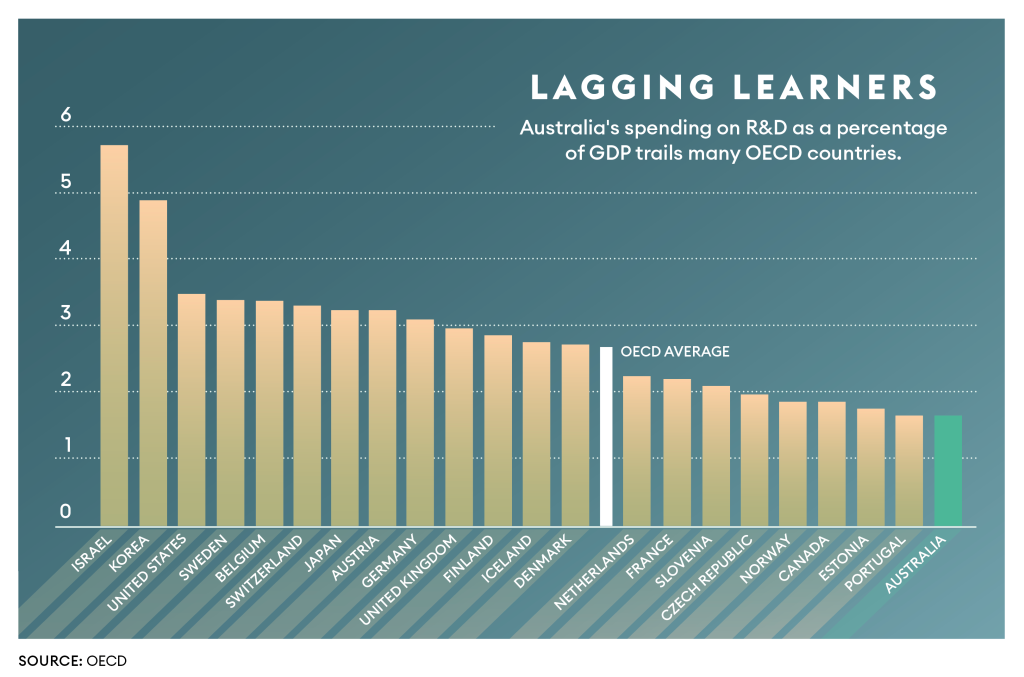
“I think we have to worry about immigration because that is still funding a lot of the talent gaps in this market – and that can be easily turned on and off at the whim of the government,” he says.
On the upside, homegrown tech talent in Australia has advanced significantly, partly because of the recruitment and training that Farquhar and Cannon-Brookes have facilitated.
“There’s a whole diaspora of Atlassians out there helping other people start businesses in Australia. It is a totally different technology ecosystem from when we started. Back then, you couldn’t hire a head of engineering, a director of engineering, you couldn’t hire a manager of engineering in Australia because there weren’t people who’d done that before. The idea of selling the internet was relatively new,” says Farquhar.
Settling co-CEO disputes the old-fashioned way
The Atlassian co-founders align with what needs to be done to strengthen Australia’s tech sector in the future. Yet, there have been times when their approaches to challenges differed. When asked how their co-CEO relationship stood the test of time, Farquhar offers insight into the banter between them.
“There’s a whole diaspora of Atlassians out there helping other people start businesses in Australia.”
Scott Farquhar
“I recommend having a shareholders’ agreement when you start a business. Our initial shareholders’ agreement had things like if we disagree, it goes to this employee who will arbitrate. But eventually, it came back to rock, paper, scissors,” says Farquhar.
“Given that I’ve lost every single game of that I’ve played in my entire life, there was a huge incentive for me to come to some sort of negotiated settlement.”
The pace of innovation and change taking place in this brave new AI world also played a role in Farquhar’s decision. “Mike and I have worked incredibly well together, and people ask us how we’ve done it. When you’ve got two CEOs, you probably make better decisions, but it takes longer. I think the next period – with AI and the change and the disruption happening to technology – we need to make faster decisions at work. So, it made a lot of sense for us to move to a single CEO model.”


